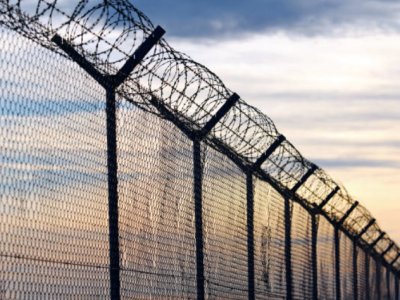
THE WALL
Most generations are defined by an event or a year. For one cohort it is 1989 and the collapse of the communist Eastern bloc followed swiftly by the Soviet Union. Only two years previously in Berlin, President Reagan had called on Mikhail Gorbachev to ‘tear down this wall!’ Little did he know that jubilant crowds would do it for him. It was a heady era.
The trouble is, the walls – and the fences – have gone back up. Across the world.
In his book Divided (Elliott and Thompson, 2018), Tim Marshall explains how, within a few short years, barriers have been erected on the borders of Greece, Macedonia, Serbia, Hungary, Slovenia, Austria, Estonia, Latvia and Lithuania. Lest we think it is a European phenomenon, border fences have also been built by the UAE, Kuwait, Iraq, Iran, Uzbekistan, Brunei, Malaysia, Pakistan, India, China, North and South Korea.
These may be added to one of the most notorious walls in existence, which divides Israel from Palestinians in Gaza and the West Bank, and one of the most anticipated, between the USA and Mexico.
At the Labour Party conference in 2005, Prime Minister Tony Blair said:
I hear people say we have to stop and debate globalisation. You might as well debate whether autumn should follow summer…The character of this world is indifferent to tradition…It has no custom and practice…The temptation is to use government to try to protect ourselves against the onslaught of globalisation by shutting it out…It doesn’t work today.
A lot has happened since then. The banking crash and global economic downturn have merged with anxieties over a surge in migration to richer, peaceful countries. In some nations, it is believed there is less wealth to go around more people. The walls of protectionism are the invisible sibling of the physical barriers which have gone up.
Many of today’s states were created in the last century by people with a shaky grasp of the dividing lines of ethnicity and religion. We speak loosely of the nation state, but there are often several nations within one state. In building walls, we divide many tribes and nations, creating minorities on one side which have no easy access to the other, where a more familiar culture exists. This may now be a fact of life, but it makes this life more precarious for these minorities.
The utopian dream of few, if any, national borders is further away than it once was. In any case, the saying good fences make good neighbours, has traction. Dividing lines can enhance rather than undermine life. But they only do so when both sides co-operate in the pursuit of essential shared goals. Climate change, terrorism, disease, crime, cyber-attacks and war do not respect national boundaries. The pooling of knowledge and information within shared structures is vital.
Many, but by no means all, Christians have an instinct for the breaking down of walls. These may be walls of hatred and suspicion, of meanness and mistrust, but they are also the physical barriers which manifest inward feelings. In Ephesians 2:14, it says of Jesus that he ‘has broken down the dividing wall, that is, the hostility between [Gentiles and Jews].’ The Apostle Paul makes a clear link between the existence of a wall and the enmity that creates it.
The emergence of new walls today may foster not just resurgent nationalism, but also greater mistrust between different Churches and the people who comprise them. The hope which lies before us is of a kingdom which assimilates the wealth and the cultures of many nations. The new Jerusalem is metaphorically depicted in Revelation as having big walls, but – significantly - gates which are open all the time. There is nothing to fear.
In 1989, events felt like a sign of this coming kingdom, but it was short-lived. Until the new walls come down, the world will remain a threatening place. As long as the world remains a threatening place, the walls will remain up. This is the paradox within which we pray.
POPULAR ARTICLES

Obama's Covert Wars
The use of drones is going to change warfare out of all recognition in the next decades.

Through A Glass Starkly
Images of traumatic incidents caught on mobile phone can be put to remarkable effect.

What Are British Values?
Is there a British identity and if so, what has shaped the values and institutions that form it?


